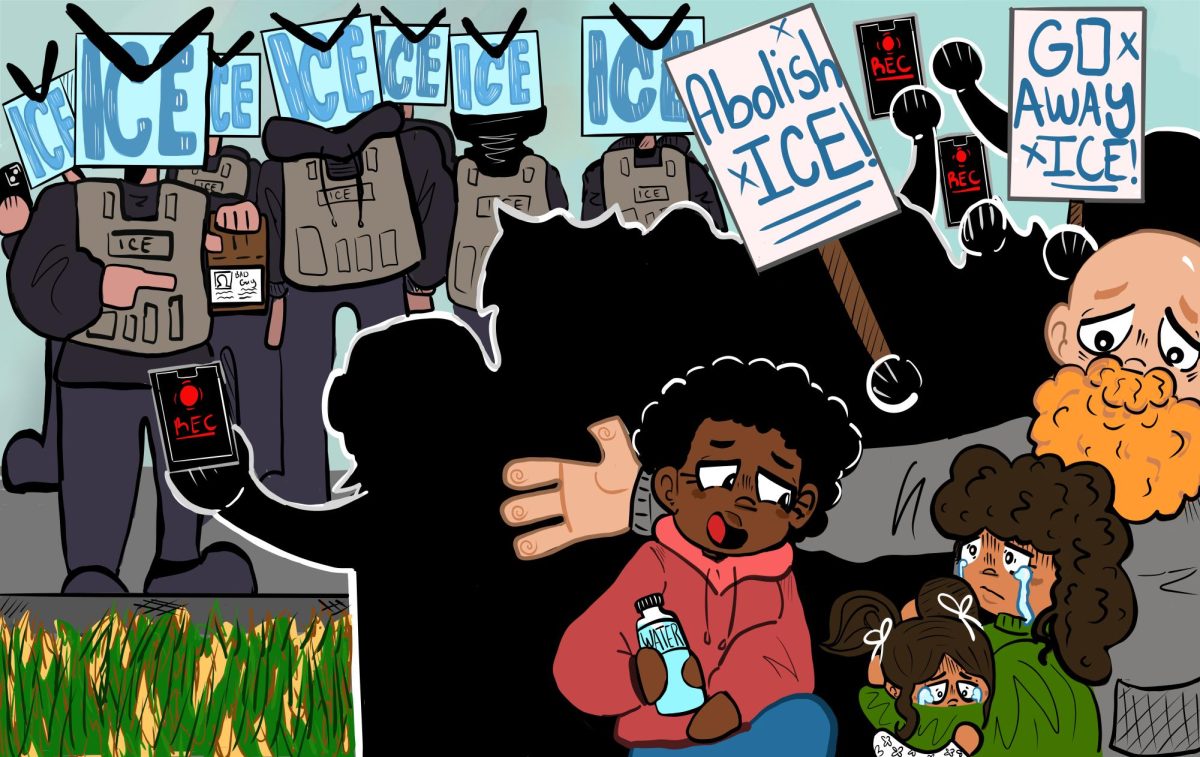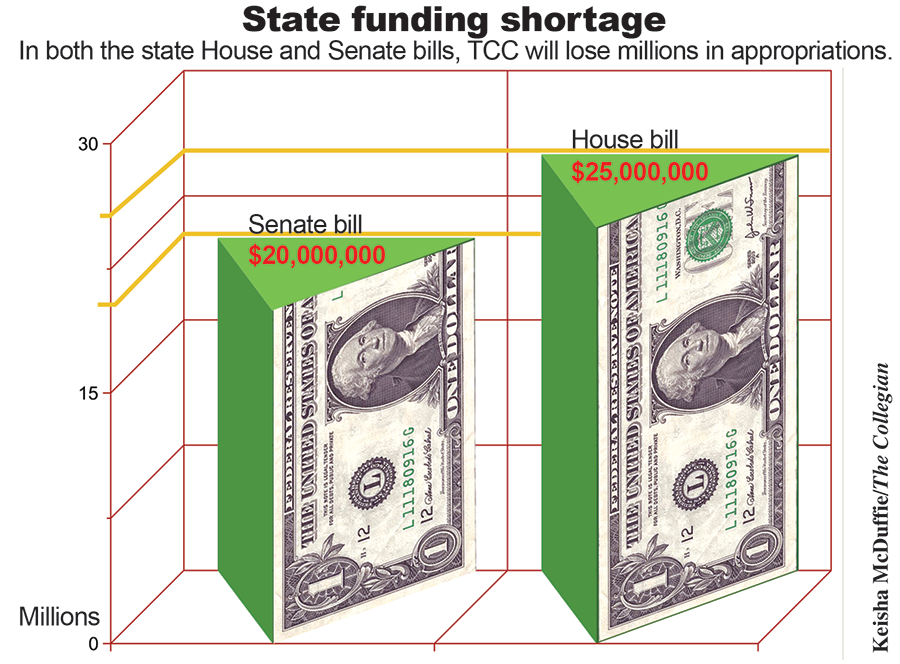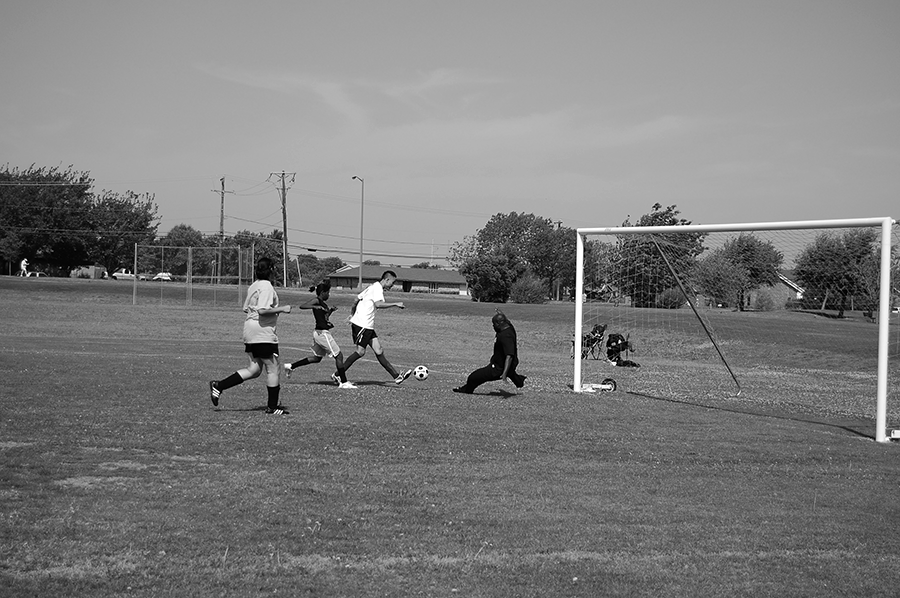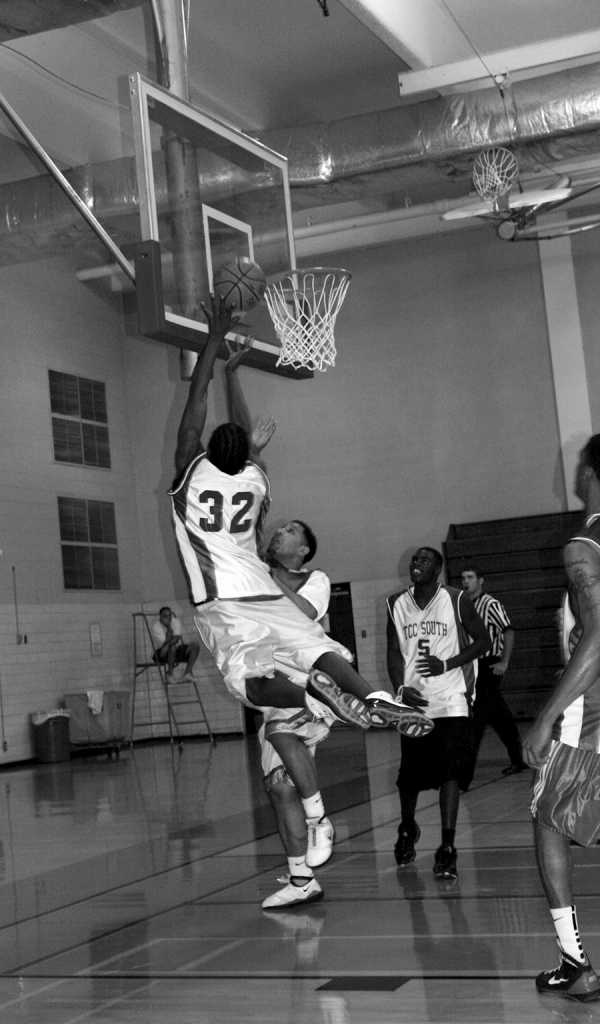By Tristan Evans/south news editor
Students and faculty packed into the South Campus Recital Hall April 6 to attend a community law forum.
Members of the Tarrant County Black Bar Association spoke about everything from domestic violence cases to how social networking sites like MySpace and Twitter affect criminal and civil cases.
Tiffany Burks, president of the Tarrant County Black Bar Association, said family violence is a topic the state Legislature takes seriously.
Years ago in Texas when a family member assaulted another family member, it would just be a Class A misdemeanor. Things are different now, she said.
“The law has changed,” she said. “And now we’ve added a family member component to the assault bodily injury cases. It’s still a Class A misdemeanor, but the family violence title is important because if you are convicted of assault bodily injury against a family member and you pick up yet another assault bodily injury after that, the second conviction then becomes a felony.”
She said it is now a third-degree felony in Texas to commit a second assault bodily injury to a family member after a first conviction.
“So as you can imagine, unfortunately, we have a lot of those cases in our office,” she said.
Because these cases occur in offices all over the state, the Legislature is again making changes and putting laws in place to ensure safety.
Burks also spoke about harassment and stalking cases. They aren’t seen a lot in Texas because of the “very high threshold of proof” that is needed, she said.
It has to be proved that the stalker or harasser intended to harm.
She also warned the audience members about what they put on the Internet. She told a story about a time she was under review for ethical violations because a man had filed a grievance against her.
The man in question was on death row for multiple homicides, had visited her MySpace page and used some of the photos on the site to make false claims about her. His claims eventually were proved false.
“You don’t know who is looking at your information,” she said.
Burks’ fellow Black Bar associate Kalandra Wheeler spoke about driving while intoxicated. People can get DWIs not only while driving under the influence of alcohol but driving with any prescribed medication that results in the loss of normal mental facilities.
“If you’re taking medication that warns you it may impact you, you can be charged,” she said. “Just because you have that prescription does not mean that it’s OK.”
Next, attorney Bobbie Edmonds spoke about the impact of social media on cases and ways it can be used to help prove or find flaws in cases.
“It impacts a case immensely,” she said.
Edmonds works in family law and spoke about how in one case she helped a father get custody of his children who, under their mother’s care, were hanging out with the wrong crowd.
Her client checked his son’s MySpace page and found out his oldest son, who was only 14 at the time, was a gang member and had tattoos that his parents didn’t know about.
The information was used to help the man gain custody of his children.
She warned the audience about receiving and sending inappropriate text messages and pictures online. She also spoke to the audience about the inappropriate use of YouTube.
“YouTube is dangerous,” she said.
She told a story about a client being bullied by one of her classmates. One day, the bully arranged for some friends to record her getting into a fight with Edmonds’ client.
The client won the fight, which eventually found its way to YouTube and received more than 10,000 hits over the next three days. Edmonds’ client found herself being charged with fighting in public and endured an eight-hour trial to clear her name. Edmonds said her client suffered mental anguish because of these events, all because she was simply defending herself.
Attorney Faye Watson spoke about sitting down with family members to discuss leaving wills and arranging pre-need funeral plans.
“It’s best to be prepared,” she said. “If you die without a will, [things] can get very messy in the state of Texas.”
Associate government professor Wanda Hill, who is the chair of South social sciences, said she was pleased to have the Black Bar Association partner with the department to answer legal questions for students.
“This was a collaborative effort,” she said. “And we plan to continue.”
South student Tanya Goff attended the event for the learning experience and is interested in learning more about legal affairs.
“For me to continue to be educated, that helps not only me but others in my community,” she said.

























